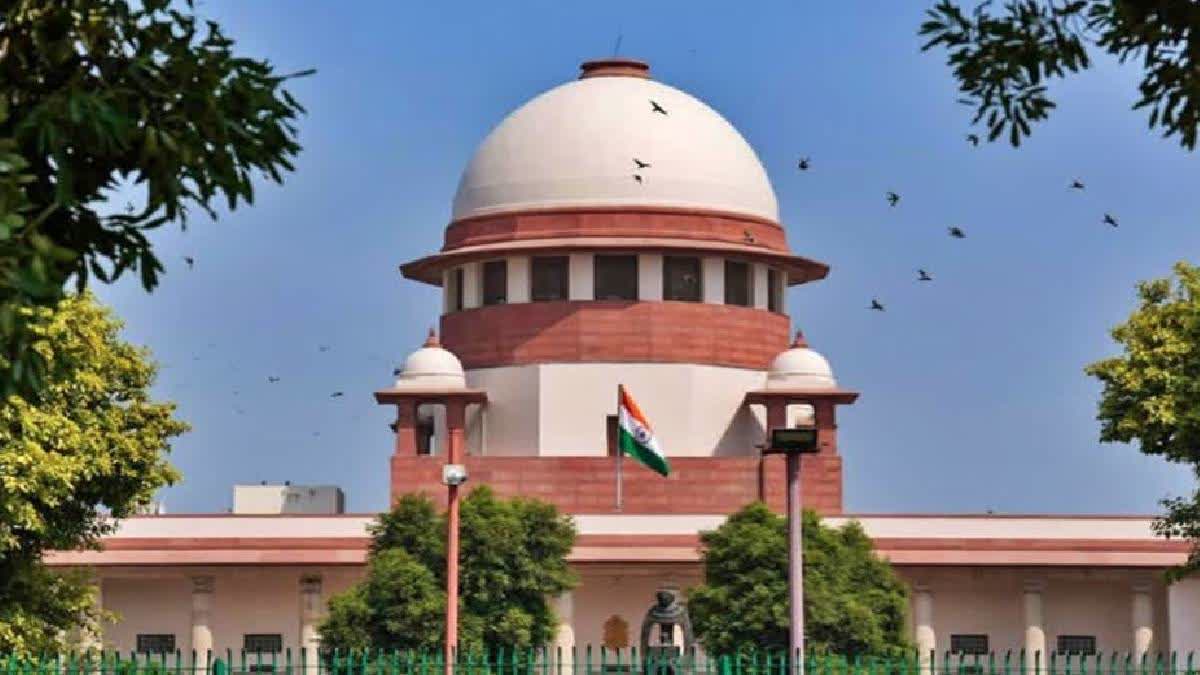New Delhi: A two-judge bench of the Supreme Court on Monday made an interesting observation regarding outlets selling vegetarian food: one of the judges wondered whether Kanwariyas would expect the food grower, server, and cook to be from a particular community since they prefer vegetarian food; and other judge shared his experience visiting a vegetarian restaurant run by a Muslim in Kerala for maintaining international standards.
A bench comprising justices Hrishikesh Roy and S V N Bhatti was hearing pleas against BJP-ruled states asking eateries and stalls on the Kanwar Yatra route to display the names of their owners.
Senior advocate A M Singhvi, representing Lok Sabha MP Mahua Moitra, said very cleverly, in the BJP-ruled states, they have used voluntary display of the name of the owner and the staff in the directive. Singhvi said, in their defence, the concerned authorities say that certain people conceal their identity and conduct their business but the identity is already there – a restaurant, which says it is pure vegetarian. “This is a camouflage. The idea is to exclude and avoid…hundreds are losing their jobs. Non-minority owners will not keep minority employees….”, Singhvi said.
At this juncture, Justice Roy asked what is the expectation of Kanwariyas and whether it was to consume only vegetarian food. “When somebody is getting vegetarian food for the option of vegetarian food ... .would the Kanwariyas also expect that the food should be provided by an owner of a certain community or a certain category? Served by or cooked by? Let us take it a little further, also grown by?”, Justice Roy wondered.
Justice Roy further queried whether the Kanwariyas are expecting food should be grown by a member of a particular community. “And, also the legal issue, is there a government formal order….firstly it says it should be voluntary and secondly a statement comes penalise those who do not (comply)”, he asked.
Singhvi said the Kanwariyas were not born yesterday and they understand what is vegetarian. “If an individual serves you non-veg food knowing that you are vegetarian then he can go to jail. But your lordships query is the real constitutional query, how much backward integration one would do: the owner has to be non-minority, the server has to be non-minority, and the cook has to be non-minority, the grower has to be non-minority. That is ridiculous! Throwing the Constitution to the smithereens”, said Singhvi.
Justice Bhatti, stressing on the need to maintain hygiene at eateries, said he used to frequent a vegetarian restaurant run by a Muslim while he was posted in Kerala, as it maintained international standards.
Justice Bhatti said: "Dr Singhvi, there I may be completely with you. I have my experience and knowledge when I was in Kerala. I may not state openly as I am a sitting judge of this court. Because of my choice, I went there. Without disclosing the name of the city, you want me to tell you the details. I can tell you. There is one vegetarian hotel run by a Hindu. There is another vegetarian hotel run by a Muslim. As a judge of that state, I was going to a hotel run by a Muslim”.
“It was exclusively a vegetarian hotel. When it comes to food standards and safety, he was displaying everything. He is a returnee from Dubai. He was maintaining international standards when it comes to safety, cleanliness, health, and hygiene. So I was preferring the hotel. So, it is a matter of choice. He was displaying whatever statutory compliances he was doing”. Singhvi said you choose by menu card and not by name.
The apex court said they may be required to display information about the kind of food they are serving, whether it is vegetarian or non-vegetarian.
During the hearing, the bench asked the petitioners’ counsel, “Has any formal order been passed by the state governments?” Singhvi said the orders passed by the Uttar Pradesh and Uttarakhand governments are exclusion by identity, which is against the Constitution.
After a detailed hearing in the matter, the apex court put on hold the directives issued by BJP-ruled Uttar Pradesh, Madhya Pradesh, and Uttarakhand asking eateries along the Kanwar Yatra routes to display the names of their owners and staff. The bench has scheduled the matter for further hearing on July 26.
The bench also issued notice to the state governments on a batch of pleas filed by Moitra, academician Apoorvanand Jha and columnist Aakar Patel, and NGO Association for Protection of Civil Rights challenging the directives.
Moitra approached the top court against the directives by the Uttar Pradesh and Uttarakhand governments that eateries along the Kanwar Yatra route must display the names of their owners. She sought a stay on the orders passed by the two state governments saying such directives aggravate discord between communities.
Read more
'Must Not Be Forced': SC Stays Orders Asking Eateries To Display Names On Kanwar Yatra Route



